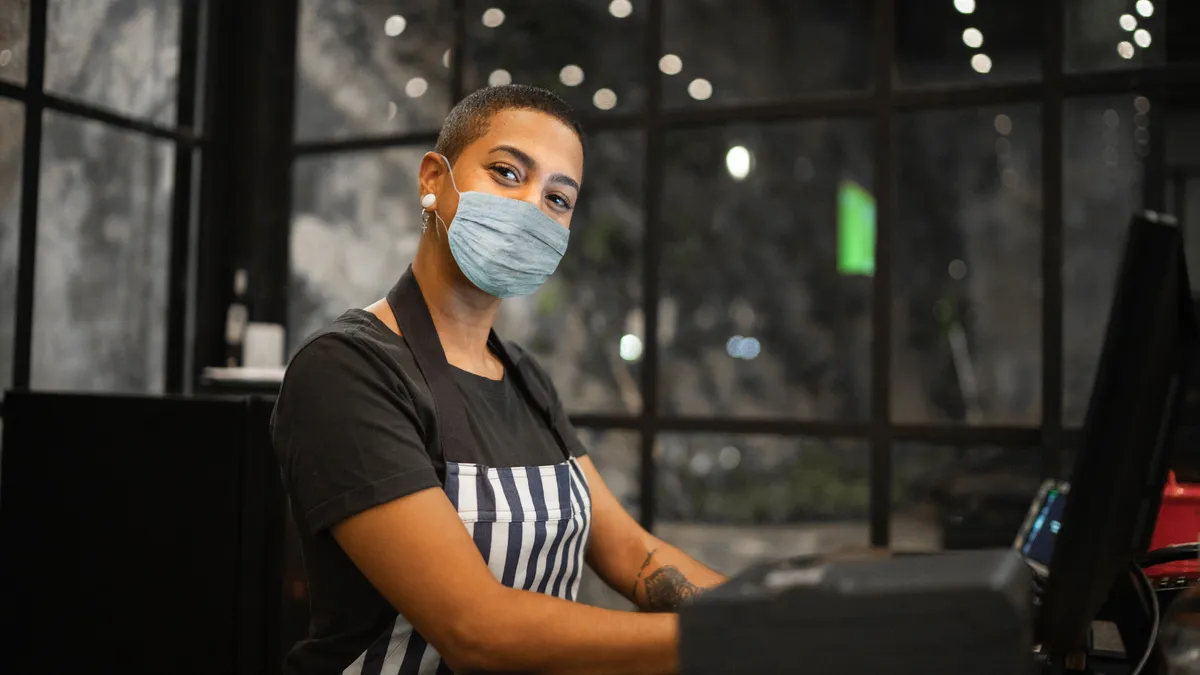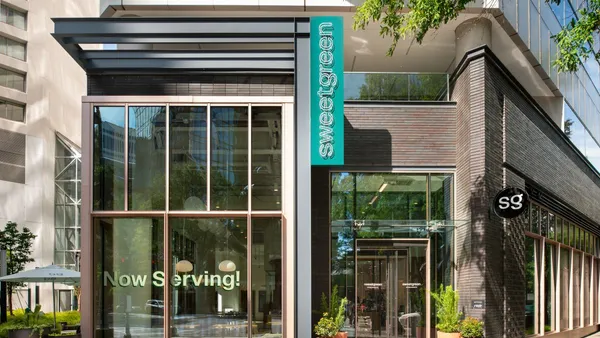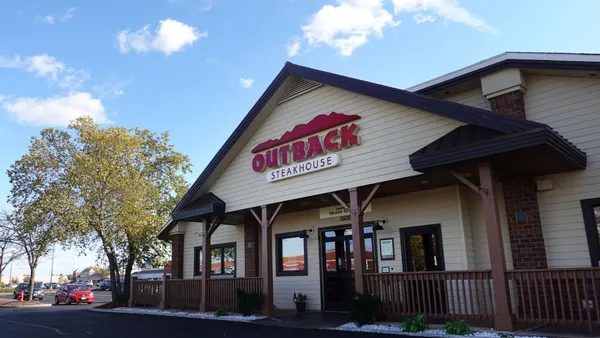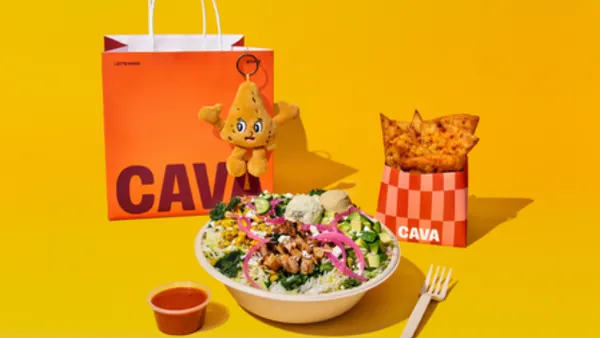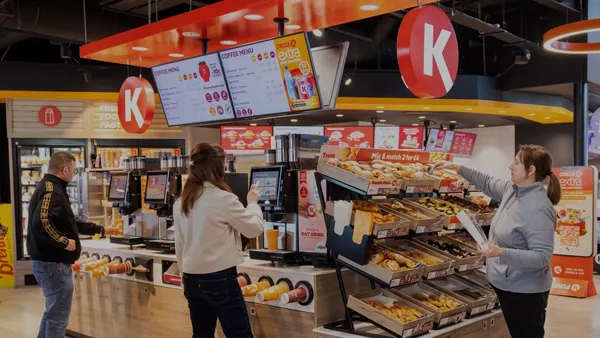Dive Brief:
- Black women tipped workers make almost $5 less than white men tipped workers in the U.S., and this wage gap grows to nearly $8 in New York, a 60% difference, compared to the rest of the nation, according to a One Fair Wage study.
- Nearly 50% of New York restaurant workers are people of color, but more than 84% of front-of-house employees in fine dining restaurants in Manhattan are white. Only 32% of people of color and 33% of women work higher-paying, front-of-house restaurants jobs in fine dining establishments. The percentage of New York tipped workers of color living in poverty is 65% higher compared to white employees. A high concentration of tipped workers of color in casual restaurants and underrepresentation of this demographic in tipped fine dining positions has created a significant race wage gap, according to the study.
- "As the economy re-opens and workers are forced to resume potentially dangerous occupations or lose their unemployment insurance, many will see deeply reduced incomes. Limited restaurant capacity, plummeting tipping rates and customers who refuse to comply with health protocols leave many tipped service workers' lives and livelihoods at grave risk," the report states.
Dive Insight:
On top of the racial wage gap between tipped restaurant workers, a majority of workers and employers surveyed by One Fair Wage reported that tips are down at least 50%. The report argues that restaurant employees of color, and especially women of color, will be the most impacted by this dip because they already receive less in tips.
This disparity could put tipped restaurant workers of color in danger as employees navigate the economic uncertainty of the novel coronavirus pandemic, even if they are in good health. Ninety-three percent of Black tipped workers said they have not been able to or do not know if they can afford their rent or mortgage payments amid COVID-19, and 87% find it challenging to cover the cost of groceries. The correlation between customers dining out and spikes in coronavirus cases across the country is also troubling, especially because the virus is impacting Black and Latinx people the most, as they are more likely to work low-wage or essential jobs and may not be able to work from home, according to The Atlantic. Across all age brackets, the COVID-19 death rate is also higher for Black people than it is for white people.
The report argues that abolishing the subminimum wage in favor of fair wages can ease these inequalities and better protect tipped restaurant workers of color from economic challenges amid the pandemic. The study also links the subminimum wage to slavery, and states that restaurants hired freed slaves after emancipation for little or no pay, forcing these people to rely on tips instead.
"The original concept of tipping, which originated from Europe, always required tips as a bonus on top of a wage, never as a replacement. The restaurant industry seized upon this mutation and incorporated the tipped wage into the nation’s first minimum wage laws, thus allowing workers to be paid primarily through customer tips," the report states.
Some major restaurant industry leaders have spoken out against the subminimum wage. Danny Meyer's restaurant group, Union Square Hospitality Group, shifted from a tipped model to a "Hospitality Included" model in 2015 that hiked up menu prices to increase labor wages. Consumer costs rose by about 15% to 20%, which angered some patrons. But a number of USHG front-of-staff workers were upset by the change as well, and as much as 40% of legacy staff members left after the policy change took effect. But just this week, Meyer reversed the policy, stating that he wanted employees to be able to earn as much money during the pandemic as possible.
Meyer still wants to eliminate tipping, and has partnered with One Fair Wage to do so. But the concept is contentious — dividing both workers and consumers over the idea of what is most ethical, and which policy functions better for restaurants. Both restaurateurs David Chang and Tom Colicchio have experimented with no-tipping models in the past before returning to tipped wages, and some operators have found that eliminating tips can result in fewer customers.



